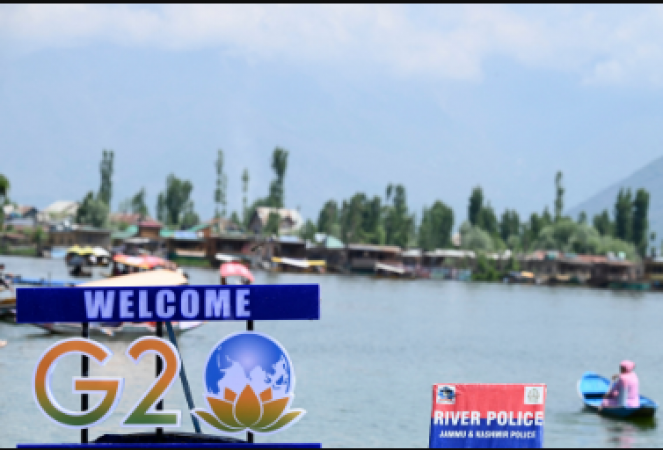
New Delhi: On Monday, despite boycotts from some of the group's members, tourism officials from the Group of 20 largest economies gathered in Indian-administrated Kashmir under heavy security.
The region, which has a majority of Muslims, is fully claimed by India and Pakistan, who have also fought two wars over control of it. Separatist rebels have been fighting Indian rule in the disputed region for decades.
The gathering, which is taking place this year as India holds the G20 presidency, is the first significant international gathering in Kashmir since New Delhi revoked the region's special autonomy status and divided it into Jammu and Kashmir in 2019.
Also Read: PM Modi meets Australian business leaders in Sydney, India investment focus
Jitendra Singh, the Indian minister for science and technology who is from Jammu, said during the opening of the meeting that events like the G20 in the past would be met with calls for strikes from Islamabad and that businesses would close.
"Now that all the stores are open, the common man wants to move on."
Pakistan, a non-G20 member, called the gathering irresponsible in April.
Since the changes in 2019, the area known for its undulating Himalayan foothills has become a popular domestic tourist destination as Indian authorities work to boost Kashmir's economy by courting foreign investors.
Also Read: A billionaire from Egypt donates £5 million to the UK Conservative Party
For the G20 meeting, Srinagar's commercial district and roads were spruced up, and security was increased throughout the city with more CCTV monitoring, a counter-drone unit, and marine commandos under the elite National Security Guard. On major streets, there were also restrictions on civilian mobility.
According to Altaf Hussain, a political analyst and former BBC journalist based in Srinagar, the Indian government is attempting to project normalcy in the area.
By inviting foreign delegates to Srinagar, New Delhi hopes to demonstrate that life in the valley is normal and that its decision to revoke the region's special status has reduced militancy there, according to Hussain.
The Srinagar tourism conference is expected to draw more than 60 delegates from G20 nations.
On the other hand, China announced on Friday that it would not go because Beijing "firmly opposes holding any form of G20 meeting in disputed territory." According to reports, Indonesia, Turkey, Saudi Arabia, Egypt, and other bloc members were also anticipated to abstain.
Also Read: Khartoum was hit by airstrikes prior to a seven-day cease-fire
Political analyst Prof. Siddiq Wahid of Srinagar told Arab News that the situation was "interesting." It is a significant statement when countries excuse themselves from the G20 meeting in Kashmir.
India will host a summit in September while holding the G20 presidency, and 19 nations as well as the EU are expected to send representatives. Two-thirds of the world's population and about 80% of the world's economic output are accounted for by this group.
According to Wahid, "It is a complicated situation that suggests a growing mistrust of India's foreign policy.